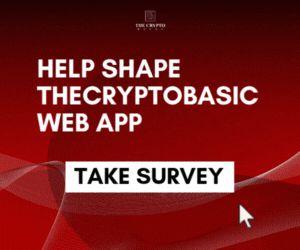Brazil started to work on its Central bank Digital currency.
As reported by TheCryptoBasic on Feb 24th, Brazil introduced its first bill To Create Central Bank Digital Currency; before that, on Feb 22, Brazil’s Committee on Economic Affairs Took the First Measure Toward Regulating Crypto by approving a bill.
The Central Bank of Brazil (Banco Central do Brasil, BCB) announced 8 projects selected to help Brazil develop its central bank digital currency (CBDC) this Thursday.
The projects will be promoted through an innovation laboratory jointly managed by the bank. The lab, known as LIFT has selected 9 projects after receiving 47 different proposals from 43 companies.
Central Bank of Brazil advances in digital Real and selects Aave to join the ecosystem. To create the digital Real as a currency full of innovation resources, the Central Bank of Brazil opened a public notice on November 2021 to receive company proposals.
According to the Brazilian authority, the project received intense international support:
“The global interest in the Digital Real attracted Brazilian companies and companies from 7 other countries (Germany, United States, Israel, Mexico, Portugal, United Kingdom, and Sweden). The application projects for Digital Real were varied, covering the delivery versus payment (DvP), payment versus payment (PvP), internet of things (IoT), decentralized finance (DeFi) applications, and payment solutions when both payer and receiver are without internet access.”
Aave:
An open-source, non-custodial liquidity protocol whose CBDC project deals with forming a liquidity pool for offering loans.
The Aave protocol provides open-source, non-custodial liquidity where users can borrow cryptocurrencies and obtain decentralized funding. With this, it is clear that Real Digital will have some DeFi features, as had been announced by President Roberto Campos Neto.
The other eight chosen by the BCB took different proposals to Real digital were:
- “Banco Santander Brasil – A major bank working on a delivery versus payment (DvP) project to tokenize ownership rights for vehicles and property
- Febraban – Brazil’s banking federation, working on a DvP project
- Giesecke + Devrient – A German payment security company whose proposal centers on dual offline payments (when both the entities sending and receiving the money are offline)
- Itaú Unibanco (With B3 and R3) – A major Brazilian financial services company, working on a payment versus payment (PvP) project for international payments
- Mercado Bitcoin (with Bitrust and CPqD)– Latin America’s largest crypto exchange, working on a DvP project focused on crypto assets
- TecBan (with Capitual)– An independent ATM network operator focused on open banking, which proposed an internet-of-things (IOT)-based logistics solution for e-commerce
- VERT (with Digital Asset and Oliver Wyman)– a tokenization project for rural financing
- Visa of Brazil, ConsenSys, and Microsoft – Looking at using a DeFi solution for financing small and medium-sized businesses.”
According to the Bank schedule, the implementation phase will start from March 28 to July 29, 2022.
DisClamier: This content is informational and should not be considered financial advice. The views expressed in this article may include the author's personal opinions and do not reflect The Crypto Basic opinion. Readers are encouraged to do thorough research before making any investment decisions. The Crypto Basic is not responsible for any financial losses.



